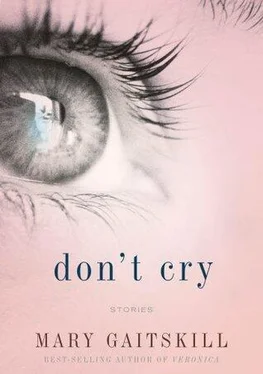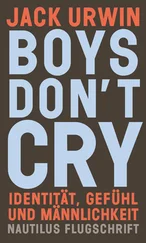What had happened to the mother? Where was the injured girl? The voice of the author was still lilting and girlish, but her words were hard and sharp, the kind of words that think everything is funny. The middle-aged woman invites the young man to her home, gives him a drink, and then pulls his pants off while he lies there gaping. For the next several pages, she alternates between fellating him and chattering cleverly while he tries to leave.
This was the feminist author we had heard about, all right. Her readers smiled knowingly, while the readers of the Canadian and Vietnamese authors looked baffled — baffled, then angry And I was feeling angry, too.
I am not really a feminist, probably because, at forty I am too young to have fully experienced the kinetic surge of feminism that occurred in the seventies, that half-synthetic, half-organic creature with its smart, dry little mouth issuing books, speeches, TV shows, and pop songs. None of it is stylish anymore, and, in fact, feminists have come in for a lot of criticism from female pundits. Some of these pundits say that feminists have made girls think they have to have sex all the time, which, by going against their girlish nature, has destroyed their self-esteem, and made them anorexic and depressed. Feminists have made girls into sluts! Others, equally angry, say that feminists have imposed restrictive rules on nubile teens, making them into morbid neurasthenics who think they're being raped, when they're actually just having sex. Feminists have neutered girls by overprotecting them! I don't know what I think of any of it; it's mostly something I hear coming out of my radio on my way to work. But I do know this: When I hear that feminism is overprotecting girls, I am very sympathetic to it. When I see my fashion-conscious ten-year-old in her nylon nightie, peering spellbound before the beguiling screen at the fleeting queendom of some twelve-year-old manufactured pop star with the wardrobe of a hooker, a jerry-rigged personality and bulimia, it seems to me that she has a protection deficit that I may not be able to compensate for. When she comes home wild with tears because she lost the spelling contest, or her ex — best friend called her fat, or a boy said she's not the prettiest girl in class, and I press her to me, comforting her, even as that day's AMBER Alert flashes in my brain, it is hard for me to imagine this girl as “overprotected.”
Which is, in some indirect way, why the feminist author was so affecting and so disappointing. She was a girl who needed to be protected, and a woman standing to protect the girl. But then she became the other thing — the feminist who made girls into sluts. She sprouted three heads and asked that we accept them all! She said she had been a prostitute, a mental patient, that she had tried to stab her father. She said it in a soft, reasonable voice — but these are not soft or reasonable things. These are terrible things. Anyone who has seen a street prostitute and looked into her face knows that. For her to admit these things, without describing the pain she had suffered, gave her dignity — because really, she didn't have to talk about it. We could imagine it. But the story she read made what had seemed like dignity look silly and obscene. Because the voice of the story was not soft. It was dry and smart as a dance step — but what it told of was neither dry nor smart. While the voice danced, making scenes that described the woman and the youth, an image slowly formed, taking subtle shape under the picture created by the scenes. It was like an advertisement for cigarettes where beautiful people are smoking in lounge chairs, and suddenly you see in the cobalt blue backdrop the subliminal image of a skull. Except the image behind the feminist author's words was stranger than the image of a skull, and less clear. It made you strain to see what it was, and in the straining you found yourself picturing things you did not want to picture. Of course, it can be fun to picture things you don't want to picture — but somehow the feminist author had ruined the fun.
After the reading, we all went for refreshments in the hospitality lounge. The Vietnamese girl and the Canadian father, as well as the feminist author, were there, signing books and talking with their readers. There were other authors present, too, including an especially celebrated Somali author known for an award-winning novel of war and social disintegration, and an American woman who had written a witty elegant, clearly autobiographical novella about a mother whose child is hit by a drunk driver and nearly killed. The feminist author appeared more relaxed in this setting than she had been onstage; she smiled easily and chatted with the mostly young women who approached her. And yet again I sensed a disturbing subliminal message bleeding through the presentation: a face of sex and woman's pain. The face had to do with disgrace and violence, dark orgasm, rape, with feeling so strong that it obviates the one who feels it. You could call it an exalted face, or an agonized face; in the context of the feminist author, I think I'm going to call it “the agonized face.” Although I don't know why— she doesn't look like she's ever made such a face in her life.
There was only one more person waiting to talk to her, an animated girl with ardently sprouting red hair. I got in line behind her. When I got up close, I saw that the author's eyes were not sweet, innocent, or sparkling. They were wary and a little hard. As she signed the animate red girl's book, I heard her say, “Sex has been let out of the box, like everything is okay, but no one knows what ‘everything’ is.”
“Exactly!” sprouted the ardent girl.
Exactly. “I liked the talk you gave,” I said, “before the reading.”
“Thank you,” she said, coldly answering my italics.
“But I'm wondering why you chose to read what you read afterward. If you didn't like what they said about you in that brochure you mentioned. I didn't read it, but—”
“What I read didn't have anything to do with what they said.”
No? “I'd love to talk more with you about that. I'm here as a journalist for Quick! Would you be able to talk about it for our readers?”
“No,” she said. “I'm not doing interviews.” And she turned her back on me to sign another book.
I stood for a moment looking at her back, vaguely aware of the Somali author talking into someone's tape recorder. With a vertiginous feeling, I remembered the days right after graduation, when Tom was an artist and I was a freelance journalist hustling work at various small magazines. We slept on a Salvation Army mattress; we ate and wrote on a coffee table. “The grotesque has a history, a social parameter,” said the Somali author. “Indeed, one might say that the grotesque is a social parameter.”
Indeed. I took a glass of wine from a traveling tray of glasses and drank it in a gulp. On one of those long-ago assignments, I had interviewed a topless dancer, a desiccated blonde with desperate intelligence burning in her otherwise-lusterless eyes. She was big on Hegel and Nietzsche, and she talked about the power of beautiful girls versus the power of men with money In the middle of this power talk, she told me a story about a customer who had said he would give her fifty dollars if she would get on her hands and knees with her butt facing him, pull down her G-string, and then turn around and smile at him. They had negotiated at length: “I made him promise that he wouldn't stick his finger in,” she said. “We went over it and over it and he promised me, like, three times. So I pulled down my G-string, and as soon as I turned around, his finger went right in. I was so mad!” Then bang, she was right back at the Hegel and Nietzsche. The combination was pathetic, and yet it had the dignity of awful truth. Not only because it was titillating— though, yes, it was — but because in the telling of it, a certain foundation of humanity was revealed; the crude cinder blocks of male and female down in the basement, holding up the house. Those of us who have spouses and/or children forget about this part — not because we have an aversion to those cinder blocks necessarily but because we are busy on the upper levels, building a home with furniture, decorations, and personalities in it. We are glad to have the topless dancer to remind us of that dark area in the basement where personality is irrelevant and crude truth prevails. Her philosophical patter even added to the power of her story because it created a stark polarity: intelligent words on one side, and mute genitals on the other. Between the poles, there was darkness and mystery, and the dancer respected the mystery with her ignorant and touching pretense.
Читать дальше












